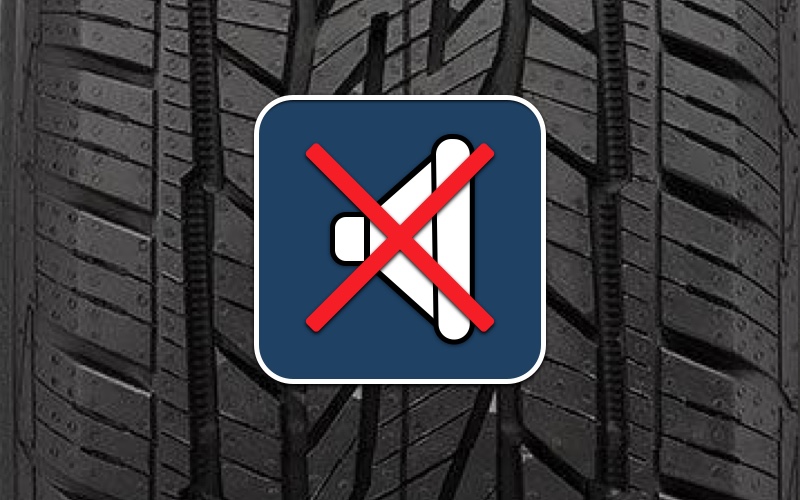When a strange sound starts coming from your wheel wells, it is alarming, to say the least. Your tires are the only thing maintaining contact with the road. As such, you need to know that they are in good working order, so you and your family stay safe.
So what about those noises? When should you be concerned, and when is it normal?
There are many different reasons for tire noise, so we’ve gathered a list of some of the more common reasons to help you figure out what step to take next.
(Pixabay / Bertsz)
Sometimes the only reason your tires are making a lot of noise is because of the road surface. Obviously potholes cause a lot of noise if you hit them, but older roads or rough asphalt can also significantly increase tire noise. The amount of noise the road makes has to do with how well it absorbs the noise from the tires. Concrete can’t absorb much, so it’s pretty loud, whereas new asphalt is quite supple and can soak up a lot of tire noise.
One of the major factors in tire noise is what kind of tire you use. Tire noise comes from a variety of factors including:
 That’s not to say that you should let your tires go bald in order to have a quiet ride. We still recommend that you get new tires when you get between 4/32” and 2/32” if you want to stay safe on the road.
That’s not to say that you should let your tires go bald in order to have a quiet ride. We still recommend that you get new tires when you get between 4/32” and 2/32” if you want to stay safe on the road.The condition of your tire also has a lot to do with how much noise it makes. If you have uneven tread, for example, you could hear a lot of road noise. Especially first thing in the morning after a freezing Utah night, you might find that your tires are quite noisy. That’s just because the tires have been sitting in one spot all night and might develop a small flat spot, but things should quiet down the warmer the tires get.
If you have uneven tread, for example, you could hear a lot of road noise. Especially first thing in the morning after a freezing Utah night, you might find that your tires are quite noisy. That’s just because the tires have been sitting in one spot all night and might develop a small flat spot, but things should quiet down the warmer the tires get.
Of course, if you hear a “slap slap slap” sound while you’re driving, it probably means that you have a flat, and you should pull over right away.
The wheel bearings in your vehicle connect your car’s wheels to the axle and reduce friction so that you can drive smoothly. If you hear a humming or grinding noise – especially when you turn or change lanes – it could mean that your wheel bearings are damaged. The humming noise happens when the wheel bearings continuously move over divots in the wheel race, but it’s a difficult problem to diagnose because the sound can travel to other parts of your car. If your technician suspects that that is the problem, he’ll probably suggest that you replace both wheel bearings to be safe.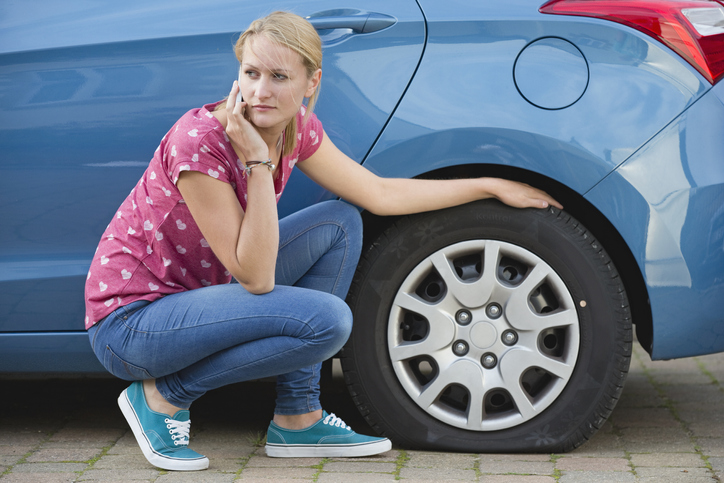
The best thing you can do for your tires is to keep on top of your preventative maintenance. Be sure to keep them inflated at the manufacturer’s recommended levels and get them rotated and aligned following a schedule. You should also accelerate and decelerate carefully and slowly to reduce uneven wear that could make things noisier than they need to be.
When concerns arise, you can always bring it to one of our tire shops. (We have 12 tire stores stretching from Highland to Farmington along the Wasatch Front. A 13th store in Layton is coming soon). We will make sure that everything is secure and working properly. Our skilled technicians know what to look for so that you can have peace of mind as you drive around on Utah’s roads.
What do you do when a customer brings you a vehicle with a roaring or howling noise coming from a wheel? In most cases, it can be coming from a worn tire, or a worn bearing.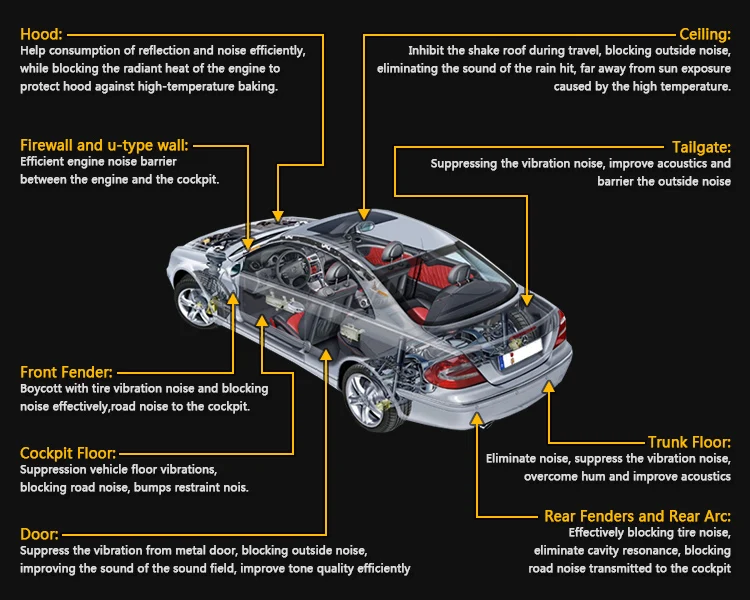 It is not easy to tell, but there are ways to determine what is causing the problem.
It is not easy to tell, but there are ways to determine what is causing the problem.
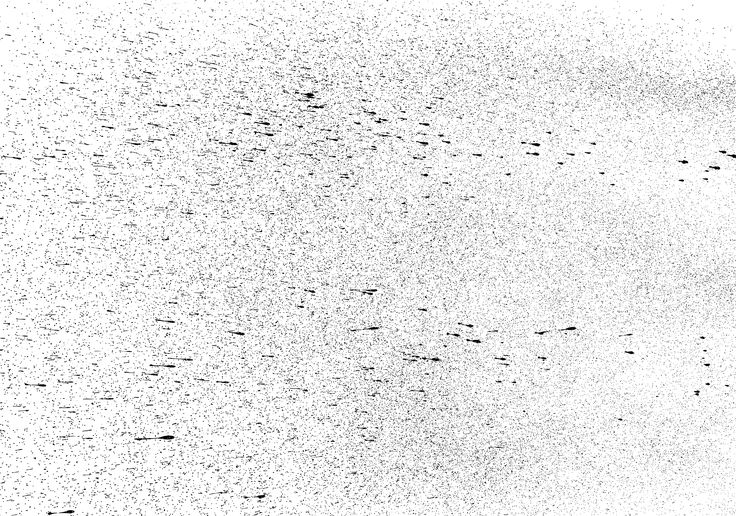 Try the opposite side also to see if you can notice a difference in the sound.
Try the opposite side also to see if you can notice a difference in the sound.We put together this noise guide to save you some labor time. You can have your technicians find the noise that best describes what they’re hearing in the list below. From there, they may be able to figure out what the issue is.
Most common causes: Bad wheel bearing or chopped tire tread
If the noise is more “growly”, then the issue is likely a bad wheel bearing. The noise may become louder the faster you drive.
Yet, if the noise rises with speed, it may also be a sign of chopped tread. This is often the result of:
It can be hard to figure out if the noise is caused by a wheel bearing or a tire. There’s something you can try, though. Turn the steering wheel slightly to the left or right. If the noise gets worse, then it’s likely one of the wheel bearings.
If the wheel bearing and tires look good, you may want to check the drivetrain. Sometimes a humming or growling noise is a sign of an issue within the drivetrain.
Most common causes: Bad wheel bearing or damaged outer CV joint
A snapping or clicking noise coming from under your vehicle is normally caused by either:
If the issue is a worn wheel bearing, you’d typically hear this noise while cornering or making sharp turns with moderate speed. A bad CV joint can be heard at low speeds with the steering wheel all the way to one side or the other. It can’t hurt to check both the wheel bearings and CV joint(s).
Most common causes: Bad wheel bearing, a flat spot in a tire, under-inflated tires, or improperly aligned tires
If the problem is a worn wheel bearing, then you’re hearing a knocking noise because the bearing isn’t rotating as freely as it should. A bad tire can cause a knocking or thumping noise, too. To be more specific:
A bad tire can cause a knocking or thumping noise, too. To be more specific:
The best way to figure out the cause of this noise is to check the tires first. If the tires look good, then check the wheel bearings.
Most common causes: Bad wheel bearing or loose pinion-bearing preload
A worn wheel bearing can cause a howling noise. If you’re also hearing a rumbling noise when turning, then it’s likely a bad wheel bearing.
You may also trace this noise to a loose pinion-bearing preload. It’s likely the case when you only hear the noise when decelerating.
Most common causes: Bad wheel bearing, under-inflated tires, or improperly aligned tires
If you’re hearing this noise, the issue may be a bad wheel bearing. To confirm it, change the speed of the vehicle. If the noise becomes worse the faster you drive, then it’s almost certainly a bad wheel bearing. If the noise remains the same, then the issue may be the tires instead.
If the noise remains the same, then the issue may be the tires instead.
The noise may be the result of an under-inflated tire or improperly aligned tires. These issues cause part of the tires (or one tire) to be scrubbing on the pavement. That causes a squealing noise.
In extreme cases, a failed wheel bearing can cause abnormal tire wear. When that happens, the noise you’re hearing is caused by both a bad wheel bearing and a worn tire.
If you’re still not sure whether the issue lies in the tires or one of the wheel bearings, check out the most common symptoms of each issue:
If you’re replacing a bad wheel hub bearing, you want to make sure that your techs use high quality replacement parts. Using high quality replacement parts:
Using high quality replacement parts:
This post will help you find a quality parts manufacturer. GMB is a reliable manufacturer of OE-quality hub assemblies and wheel bearings. Check out this page to find out why GMB wheel bearing and hub assemblies are the prime choice.
Many car owners are faced with such a problem as rubber noise. This phenomenon does not carry anything negative, but creates a certain discomfort during trips. For most, the lack of noise even becomes one of the main factors in choosing new tires. Someone seeks to drown out the rumble with good acoustics or even a radio, but this does not help in all cases. In addition, car owners are not just worried about the annoying monotonous sound, but also the question of whether noise is the cause of malfunctions. In fact, the reasons lie in the quality of the road surface and the tires themselves.
More often than not, car owners complain about noise after replacing winter tires with summer tires. In the early days, the difference in driving is felt especially strongly. And the reason for the increased noise is far from being in the open window, but in the following features:
If we consider summer and winter tires in terms of different noise levels, the following should be noted:
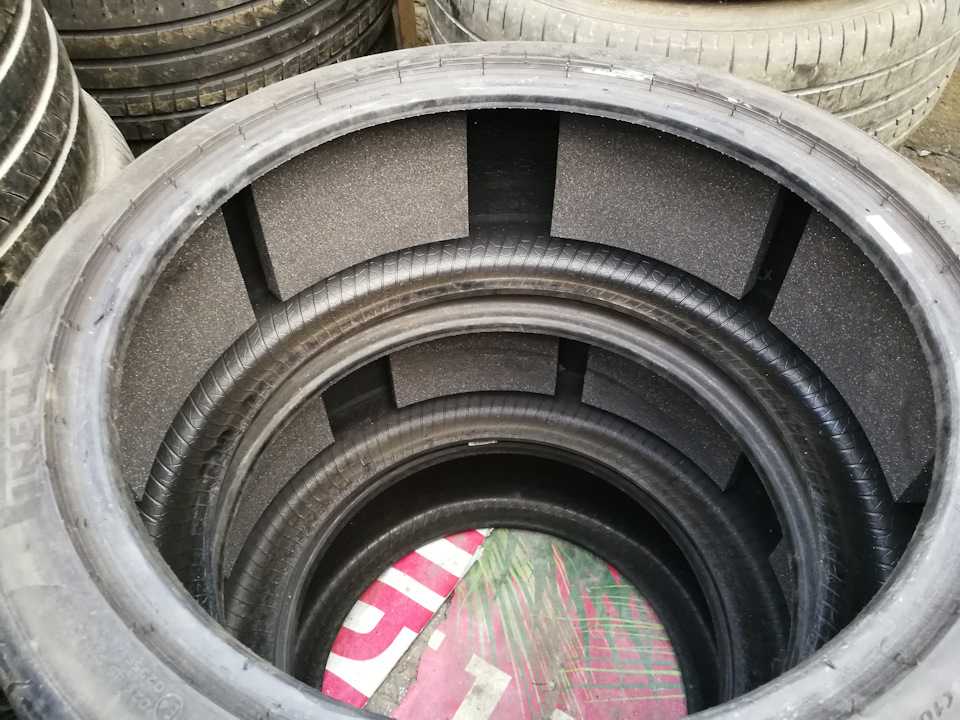 When particles of crushed stone (pavement filler) hit its tread, a lot of noise is created.
When particles of crushed stone (pavement filler) hit its tread, a lot of noise is created. When driving in the summer, the sound effect is emitted by the tires themselves, while in the winter the noise comes from the adhesion of the rubber to the road surface. It is the features of the tread, according to experts, that are the most obvious causes of the hum.
A variety of factors play a decisive role in the appearance of sufficiently strong rubber noise: from the quality of the tires themselves to the road surface and environmental conditions. Common causes include:
Common causes include:
In the field of road construction, crushed stone is most often used as a filler. In contact with the surface of the tires, it leads to the appearance of a characteristic noise. At the same time, the interaction of hard summer rubber with a porous coating is accompanied by a much louder rumble than soft winter tires. Noise can be amplified in those sections of the pavement where very fine aggregate has been used.
Over-inflated tires are another reason for their increased rubber noise. When the tire is inflated too much, the area of its adhesion to the roadway increases, which inevitably leads to an increase in the already unpleasant rumble. Many car owners and service workers rarely pay attention to pressure indicators. Inflation must be carried out under the control of a manometer.
Many car owners and service workers rarely pay attention to pressure indicators. Inflation must be carried out under the control of a manometer.
Cheaper tires have a low quality compound that causes too much noise. It may also be the result of non-compliance with manufacturing technology, which affects the quality of the tread and other performance characteristics of the tires. Therefore, it is better to buy tires that have passed certification tests for noise levels and other safety indicators.
Wider tires always make more noise because they have a larger contact surface with the road surface and therefore higher asphalt resistance.
In summer, especially in very hot weather, you may notice an increase in noise. This is due to the softening of the rubber and the increase in its resistance to the road surface.
Noticing that winter tires are less noisy, some drivers decide to leave them for the summer. But here it is worth noting that this will only increase the noise even more. In hot weather, the rubber softens and adheres even more to the asphalt. In addition, it will worsen the car's handling on the road and lead to faster tire wear.
But here it is worth noting that this will only increase the noise even more. In hot weather, the rubber softens and adheres even more to the asphalt. In addition, it will worsen the car's handling on the road and lead to faster tire wear.
There is nothing wrong with tire noise while driving, and there are no special methods to get rid of it yet. It is only necessary to choose the right tires and monitor its condition. A few more noise reduction tips:
In terms of tire noise, tires with wide longitudinal grooves and soft tread will be the least noisy. The more longitudinal grooves the pattern has, the less unpleasant hum it will emit.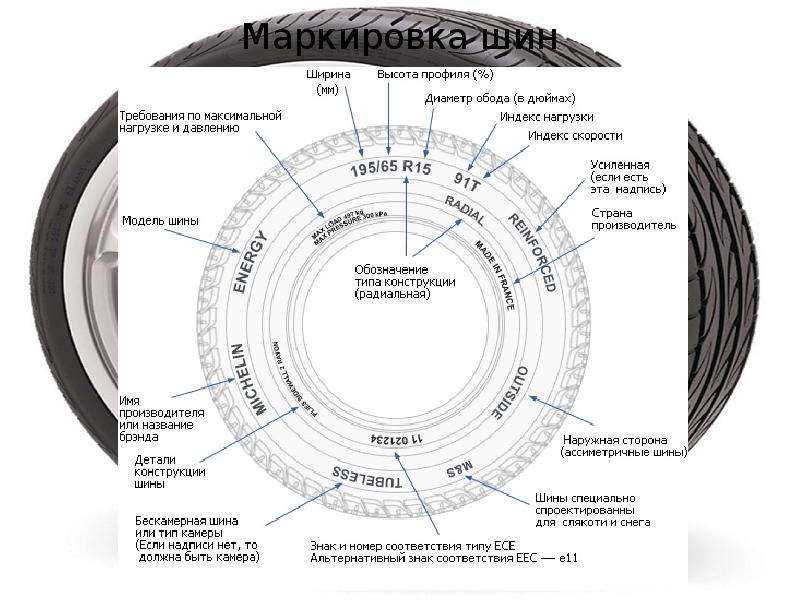
Sometimes after installing new tires, it turns out that they generate an unpleasant sound that can be described as a buzz. This is due to the fact that a tire rolling on the road surface becomes a source of air vibrations, which are perceived by the human ear as noise. This problem applies to both winter and summer tires. Why is this happening?
First of all, it is worth noting that humming tires are a problem not only for the owner of the vehicle, but also for people living along roads with active traffic and near highways. Too noisy tires not only reduce driving comfort, but can also be a sign of problems with your car.
Before thinking about changing tires, make sure that noise occurs not only when driving on the road in certain conditions, but also in other cases where no dependence can be traced. It is worth remembering that the volume of your tires is affected by many factors independent of you:
1) the condition of the road surface - pits and other irregularities increase the noise, as well as the humidity of the pavement and the material from which it is made.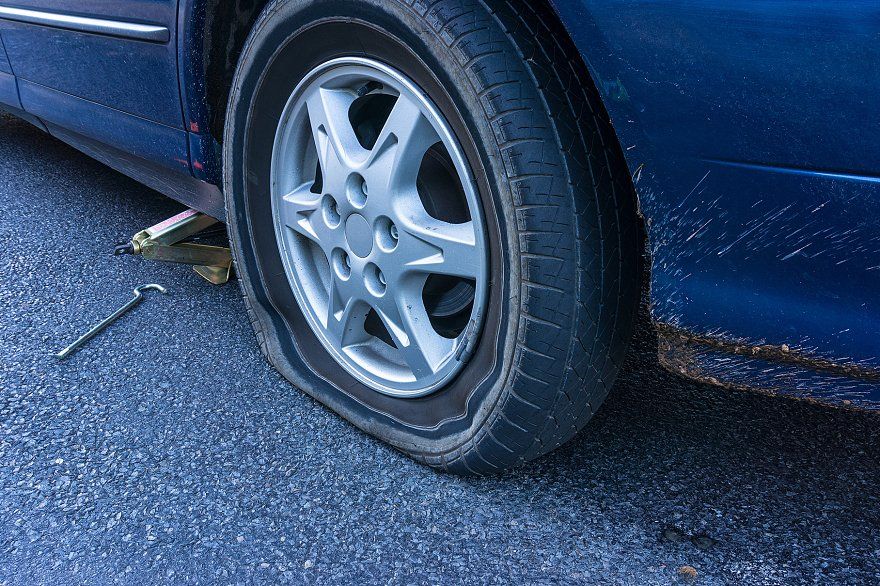 A dry road surface increases the friction of the tires on the surface, as a result of which the rumble becomes more audible. In turn, when tires are in contact with certain material, so-called "rolling noise" can occur, resulting from the suction, compression and release of air through the tread;
A dry road surface increases the friction of the tires on the surface, as a result of which the rumble becomes more audible. In turn, when tires are in contact with certain material, so-called "rolling noise" can occur, resulting from the suction, compression and release of air through the tread;
2) critically low air pressure in the tire - a decrease in pressure by 0.5 bar increases the noise by about 1 dB;
3) tire noise class - if your tires hum while driving regardless of the weather and road surface conditions, the problem is caused by a serious tread defect.
4) Studded tires make more noise than non-studded tires.
Tooth bleed is a situation in which the tread wears unevenly on the front side of each block. The profile of such a tire resembles the tip of a miter saw, but this defect is not so easy to notice with the naked eye. How do you know if your tires are showing teeth? Just run your hand over the tread - if you don't feel any resistance in one direction but feel it in the other - the tire has already begun to fail.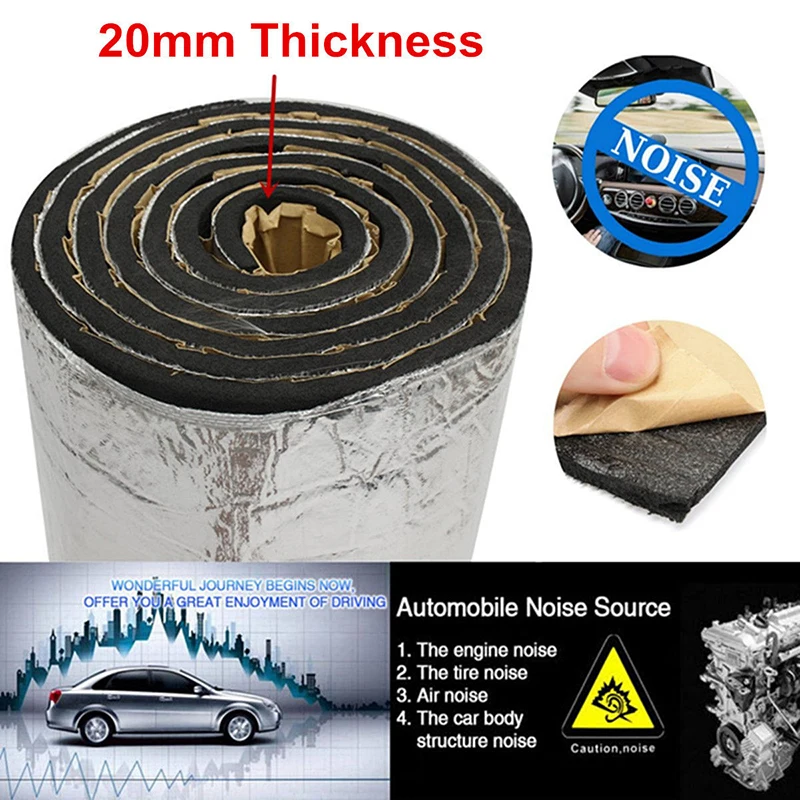
Tooth bleed is most common in front wheel drive vehicles equipped with multi-link suspension where the same forces act on rear axle mounted tires causing the tread blocks to wear unevenly but always harder on the trailing edge.
However, the presence of this type of suspension is not the main cause of tooth protrusion, however, in combination with other factors, it can aggravate it. Teething in front- or rear-wheel drive vehicles can also occur for other reasons:
1) shock absorbers are worn out on the suspension of the car - their service life is 100-150 thousand kilometers. The more shock absorbers are worn out, the faster the tire wears out;
2) incorrect rear suspension geometry - in many new cars, the rear wheels are mounted with a negative inclination to improve traction. If the wheels are too tilted, the tires wear out faster;
3) tire pressure is too high or too low - it is necessary to adjust the pressure depending on the conditions of the upcoming trip. If you are traveling alone, you can reduce the pressure a little. However, before a long trip with the whole family and with luggage, it is worth pumping up the tires.
If you are traveling alone, you can reduce the pressure a little. However, before a long trip with the whole family and with luggage, it is worth pumping up the tires.
The serrations are also affected by driving style, especially sudden acceleration and braking, as well as driving a significant part of the route in a straight line, without turning. In addition, incorrectly selected tires that do not match this car model can also become defective after a while.
Depending on the cause of uneven tread wear, there are various ways to solve this problem. The easiest is to grind excess rubber and level the tread with a special device. However, due to increased tire wear, such a procedure may not be cost-effective.
If the cause is the design of the tire itself, then you should consult with an experienced tire specialist. The best way to counter teething is to regularly check tire pressure, suspension geometry, shock absorber condition, and adapt your driving style to the vehicle's operating conditions.